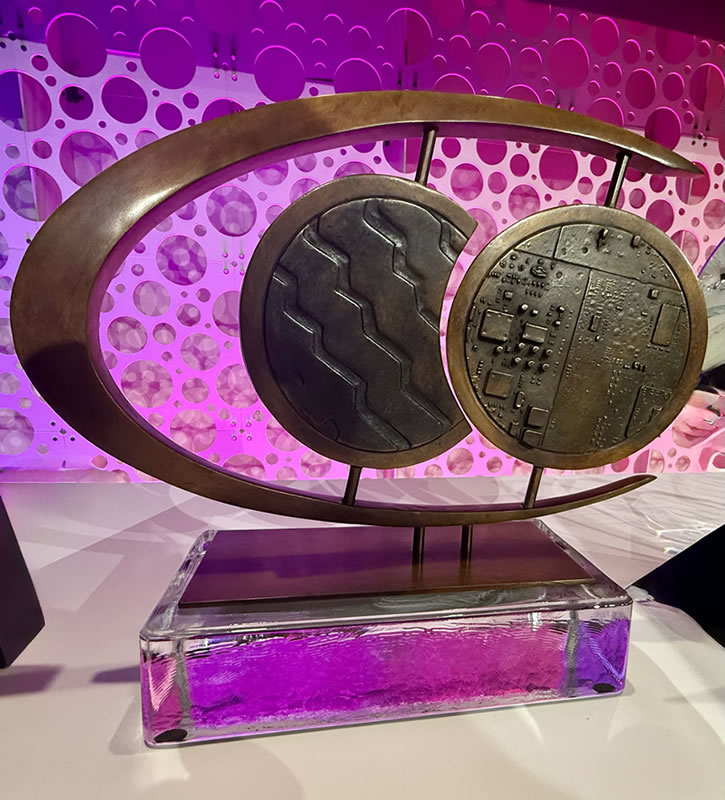ReMA Design for Recycling® Award
Begun more than 30 years ago, ReMA’s Design for Recycling® initiative encourages manufacturers to account for the end of a product’s useful life, by considering what else it can become, during the design-stage of a product’s development.
Designing with recycling in mind means recognizing that a product’s usefulness does not end because the original intent for the product has run its course. By designing with this methodology, manufacturers use recycling and repurposing to plan out the product’s new lifecycle, which reduces waste and reliance on natural resources.

Eligibility
Products designed with recyclability in mind:
To be eligible for ReMA’s Design for Recycling® Award, a company’s product(s) must be designed/redesigned and manufactured to:
- Contain the maximum amount of materials that are recyclable.
- Be easily recycled through current or newly designed recycling processes and procedures.
- Be cost effective to recycle, whereby the cost to recycle does not exceed the value of its recycled materials.
- Be free of hazardous materials that are not recyclable or impede the recycling process.
- Minimizes the time and cost involved to recycle the product.
- Reduce the use of raw materials by including recycled materials and/or components.
- Have a net gain in the overall recyclability of the product while reducing the overall negative impact on the environment.
Design for Recycling® Applied
The following are examples of products made using the Design for Recycling concept. Each is a winner of ReMA’s prestigious Design for Recycling Award:
Samsung Electronics
The Samsung Galaxy S25 contains recycled plastic, aluminum, glass, steel, gold, copper, and rare earth elements and uses a battery with at least 50 percent certified recycled cobalt. Its packaging box is made with 100 percent recycled paper.
The REMADE Institute
REMADE is the only national institute focused solely on developing innovative technologies in sustainable product design, recycling, systems analysis, and related areas to increase the supply and use of recycled materials.
EnviroSense® PaperBlister™ Packaging | Sonoco Alloyd
Made entirely from renewable resources, the mono-material EnviroSense® PaperBlister™ package is plastic-free and completely recyclable in the paper stream. EnviroSense PaperBlister packaging offers a recyclable alternative to traditional retail plastic-to-card blister packaging – all without the need for costly new sealing equipment lines.
EcoCart™ | Cascade Engineering
EcoCart™ is the first cart ever manufactured with residential bulky rigid plastics from curbside collection, like. It delivers the same durability, shape, and performance and is recyclable.
Lexmark Toner Cartridges | Lexmark
Lexmark Toner Cartridges are designed with recyclability in mind by planning cartridge design and selecting materials that work well in Lexmark’s recycling process for reusing and recycling all parts at Lexmark.
Nestlé® Pure Life® 700ml Bottle | Nestlé Waters North America
The Nestlé® Pure Life® bottle is made entirely from recycled content and features a state-of-the-art, pressure-sensitive label that releases easily during the wash stage of the recycling process.
The Latitude 5590 Laptop and 5285 2-in-1| Dell, Inc.
The Latitude 5590 contains a removable battery, is free of harmful substance such as mercury, eliminated the use of glues and adhesives, contains a modular design making easier to access and disassemble, and uses standardized fasteners. The Latitude 5285 2-in-1 uses gold recycled from used electronic products.
EcoStrate SFS, Inc.
EcoStrate manufactures via its proprietary technology platform composite plastic products from 100% post-consumer, high-polymer content recyclable materials that are difficult to recycle. EcoStrate’s products include traffic signs, indoor/ADA signs, flooring, and other surface materials.
2016 Curved Full HD TV (UN55K6250)| Samsung
The 2016 Curved Full HD TV incorporates easy-to-disassemble, snap-together parts that are made with minimal chemical content. The snap closures eliminate the use of many screws, making it easier for recyclers to disassemble.
4K ULTRA HD OLED and LED TVs | LG Electronics, Inc.
The 4K ULTRA HD OLED and LED TVs include mercury-free display panels; use of recycled and recyclable plastics; inclusion of PVC and BFR-free components; small and lighter packaging; ease of disassembly and label/seal separation; and standardized materials and connection types.
DfR Award Timeline
The Design for Recycling® Award is ReMA’s highest award that is offered annually to the most outstanding contribution to products designed with recycling in mind. It recognizes the proactive steps made by manufacturers who have actively incorporated Design for Recycling® principles into their products and manufacturing processes.
Deadline for submission is: February 9, 2026.
|
Date |
Action |
|---|---|
|
November 10, 2025 |
Call for entries. |
|
February 9, 2026 |
Deadline for submissions. |
|
February 20, 2026 |
Request for additional information deadline. |
|
February 23-27, 2026 |
Application review. |
|
February 27, 2026 |
Notification to applicants. |
|
April 15, 2026 |
Award Presentation at ReMA2026 Convention and Exposition in Las Vegas. |
Previous Award Winners
No awards were presented in 2023, 2013 or 2008.
2025 Winner
Samsung
Electronics
2024 Winner
2022 Winner
2021 Winner
2020 Winner
2019 Winner
2018 Winner
2017 Winner
2016 Winner
2015 Winner
2014 Winner
2012 Winner
2011 Winner
2010 Winner
Coca-Cola Recycling Company
2009 Winner
The Herman Miller Company
2007 Winner
U.S. Environmental Protection Agency
2006 Winner
Hewlett Packard